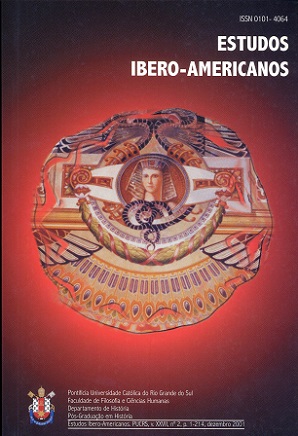Strays and population policy in Portuguese America in the second half of the XVIII century
DOI:
https://doi.org/10.15448/1980-864X.2001.2.24432Keywords:
The Eighteenth Century, Brazil, Colonial Age, PombalismAbstract
The term "vagrants", sometimes accompanied of the epithet "wicked", frequented, with certain regularity, the correspondence exchanged among the metropolitan and colonial Portuguese authorities, in the second half of the 18th century. Vagrancy, considered contrary to the public well being, was a crime described in the "Ordenações do Reino". So, although the surveillance on that type of behaviour is not a noveity for the ir century, it is interesting to observe that, for that period, the combat of the vagrants, and of the wicked ones, that swarmed the roads of Portuguese America's hinterland, received a new treatment. In the reign of D. José I, his minister Sebastião José de Carvalho e Melo, taking into account Willian Petty's Political Arithmetic principies, declared that the largest wealth of a State was its population. That maxim sustained a settlement action that objectified, to integrate indigenous and dispersed inhabitants to the political body of the Portuguese kingdom, congregating fitem in institutionalised settlements. In that context, the population notion stands out, because it is tied up to a specific condition that is being attributed to the individuais: to be an useful member of the civil society.
Downloads
Downloads
Published
How to Cite
Issue
Section
License
Copyright
The submission of originals to Estudos Ibero-Americanos implies the transfer by the authors of the right for publication. Authors retain copyright and grant the journal right of first publication. If the authors wish to include the same data into another publication, they must cite Estudos Ibero-Americanos as the site of original publication.
Creative Commons License
Except where otherwise specified, material published in this journal is licensed under a Creative Commons Attribution 4.0 International license, which allows unrestricted use, distribution and reproduction in any medium, provided the original publication is correctly cited.






